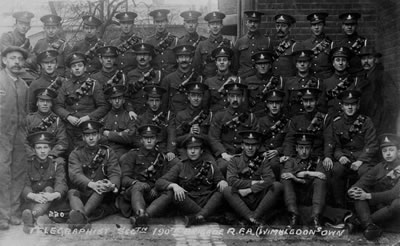Merton Remembers 2014-2018
Wimbledon's links to World War I
When German emperor Kaiser Wilhelm made a state visit to Wimbledon in 1891, crowds four deep lined the streets to watch the spectacle.
A few years later his hostile action against France and Belgium led Britain to defend its European allies, resulting in one of the most brutal conflicts in history where millions died across the globe.
In Merton one early impact of the war was the arrival of refugees from Belgium in August 1914. A sister to the Belgian king had a Wimbledon home and set up a relief committee.
More than 500 people received refuge in the borough along with food, clothing and medical aid.
In 1914 Wimbledon Hospital became one of the first medical institutions to treat casualties which was a great source of community pride.
Of 500 men treated between 1914 and 1918, only one died. Wimbledon Common was used as a base for some of the first recruits to respond to Kitchener’s call for volunteers. Its varied terrain was used for training and parts of the golf course were dug up to create practice trenches. The camp could not provide living quarters so billeting took place around the area.
Among the recruits were men from the 190th Brigade, Royal Field Artillery – the last 'Pals battalion' made up of friends and workmates who would serve, and in many cases die, together on the battlefields. Around 700 men answered the call to enlist, and within a month the brigade was at full strength.
Wimbledon's Own (pictured right) was one of the last of the 'Pals' battalions to be formed during the First World War. The Telegraphist Section were members of the 190th Brigade of the Royal Field Artillery and would have trained and camped on Wimbledon Common.
A number of local men were honoured for their actions, many posthumously, including George Cates who received the Victoria Cross. Cates died in 1917 after placing his foot on a bomb to take the blast, saving many lives. William White was awarded the Victoria Cross in 1918 for bravery, endangering his life for the sake of others. He died in 1974.
Find out more about what Merton council is doing to commemorate those who fought in the war at Merton Remembers.
At Morden Park on August 2 at 11am a Commemorative event will mark the start of the First World War and Merton's contribution during that time.
Two narrators will guide the audience through the first year of war aided by the award-winning Regent Brass band and a choir. Your attendance is requested, and - should you wish - please also bring a picnic for after the event where the brass band will play for your entertainment.
Please note that this event does not take place at Morden Hall Park, but Morden Park by the Register Office.
July 22, 2014
